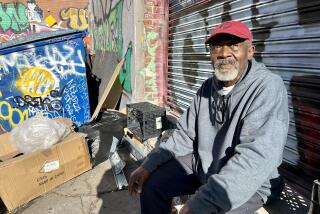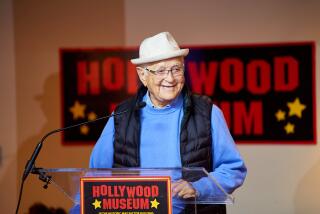Retirees Take a Bite of the Big Apple
NEW YORK — Goodbye, early bird specials and lazy afternoons at the pool. Hello, traffic, headaches and rude, raucous Noo Yawk attitude.
Bored with life in the suburbs and in senior citizens’ enclaves, a new wave of retirees with energy and money to spare is finding the excitement of Manhattan more alluring than the serenity of the Sun Belt.
“I just feel more alive here,” said Selma Raynor, 71, a retired English teacher who recently left suburban Long Island for an apartment on the Upper West Side.
“A couple of weeks ago, I saw six plays in seven days. That was really greedy, but I loved it,” she said.
With crime down and politicians touting a New York City renaissance, many retirees say the city’s good points--including theater, museums and easy public transportation--outweigh the bad.
“Culturally, the city has always been vibrant,” said Nancy Packes, president of Feathered Nest Inc., one of Manhattan’s largest apartment brokerages. “But now it’s a truly livable place, and I think it’s drawing people back in droves.”
New York has always been home to many older people--the city’s Department for the Aging says 13% of residents are over 65--and there are no exact figures on the number who leave or move back. But observers believe a growing number of well-off seniors who once left are deciding to come back.
“In Florida, if you don’t have a car you can’t go grocery shopping, you can’t go to the movies,” said Joanne Nicholas, whose 80-year-old mother, Harriet Hersch, recently moved from Delray Beach, Fla., to Brooklyn.
“People are in their air-conditioned house or their air-conditioned car, on the way to the mall. . . . In New York, you can walk anyplace you need to go,” she added.
Retirees are moving into all five boroughs, often to be near relatives; however, for serious culture lovers, Manhattan is the destination of choice.
“Retirees don’t feel retired in New York,” explained Barbara Corcoran, chairman of the real estate agency The Corcoran Group. She estimated that 30% of her agency’s sales are to returning retirees, up from about 20% last year.
Mary McIntosh, 63, and her husband, Jack, 79, are typical of the new urban retirees--the two have been thriving on the city’s energy since they moved to the Upper East Side from Westfield, N.J., last spring.
“There’s so much stimulation here, you don’t dare take a day off for fear you might miss something,” Mary McIntosh said. “We go to the Philharmonic, we go to the Metropolitan Opera, we have three or four or five theater subscriptions. . . . You can just go out your front door and it’s all there.”
Many newly arrived retirees say they prize the city’s vibrant street life and the convenience of having everyday essentials within walking distance.
Like their younger counterparts, they often find they need fat wallets to take advantage of New York’s offerings. For retirees on fixed incomes, the city’s cost can be prohibitive.
But older people receive automatic discounts to many cultural events and on bus and subway fares, and some say the money they save by not owning a house or car can make life in New York more affordable than it first appears.
Hersch is one of many former New Yorkers drawn back by the opportunity to be near grown children. She plans to live in Brooklyn’s Prospect Park Residence, one of several new assisted-living centers in the city.
A brochure for The Esplanade, an upscale assisted-living center in a posh corner of the Upper West Side, boasts of proximity to “a potpourri of specialty shops, restaurants, boutiques and bookstores.”
More to Read
Sign up for Essential California
The most important California stories and recommendations in your inbox every morning.
You may occasionally receive promotional content from the Los Angeles Times.










